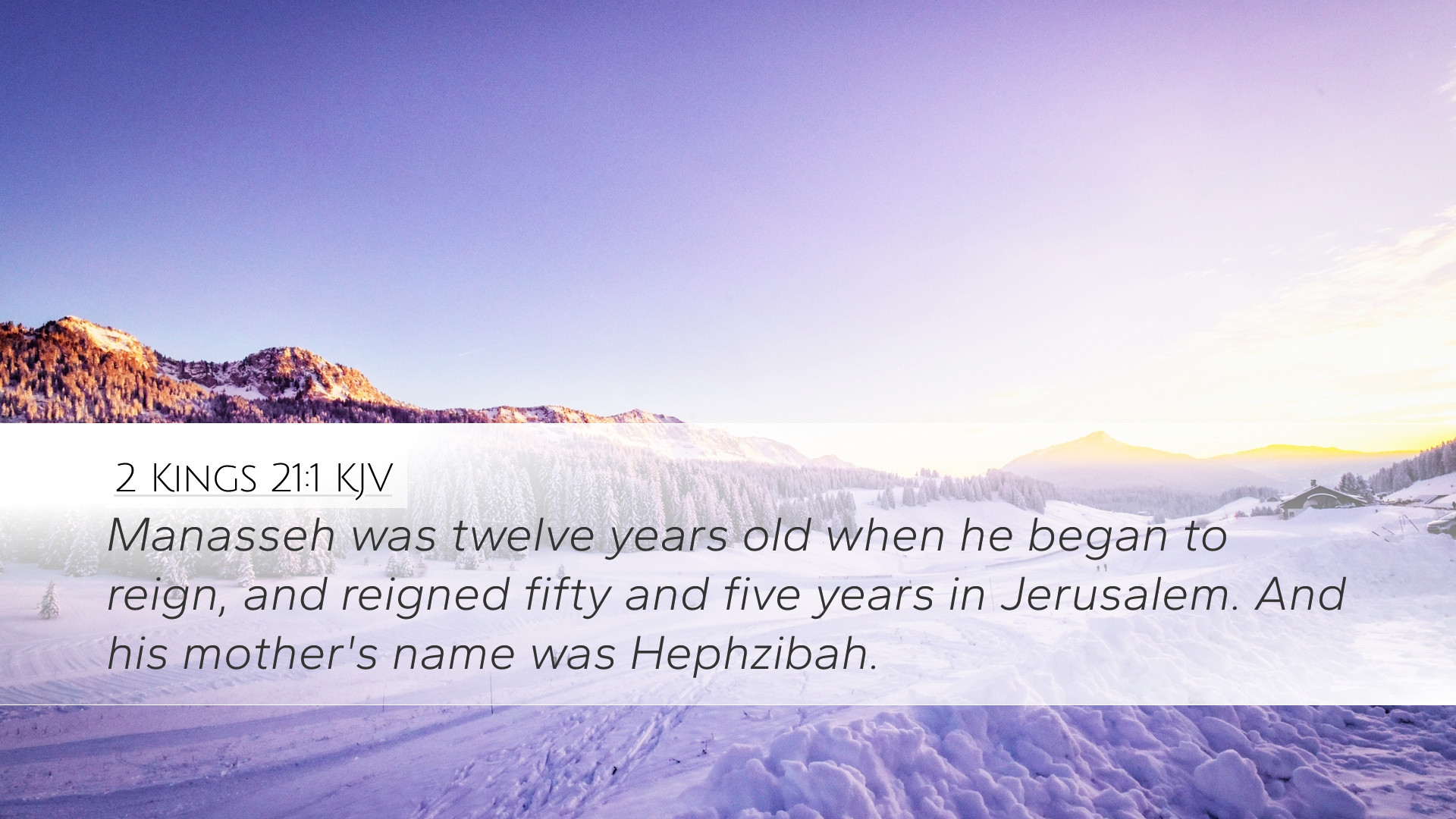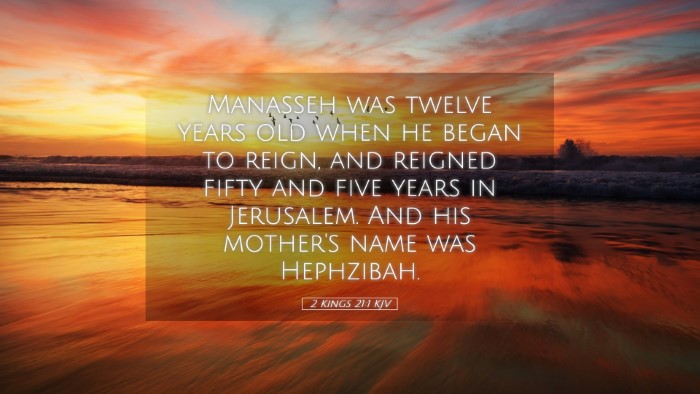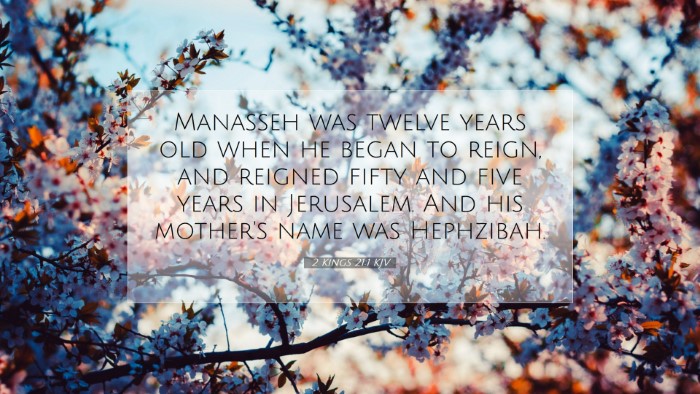Commentary on 2 Kings 21:1
Verse Reference: 2 Kings 21:1 - "Manasseh was twelve years old when he began to reign, and he reigned fifty and five years in Jerusalem. And his mother's name was Hephzibah."
Introduction
The reign of Manasseh is one of the most significant and sobering periods in the history of Judah. This verse sets the stage for a king whose actions would profoundly affect the spiritual and moral trajectory of the nation. His long reign of 55 years brought about both great evil and, eventually, sincere repentance, allowing for rich theological reflection.
Exegesis and Insights
-
Manasseh's Age
Manasseh ascended to the throne at the incredibly young age of twelve. Such youthfulness raises questions about his capacity for governance and the influences surrounding him. Matthew Henry observes that young rulers often follow the lead of advisors, which may lead to corruption or misguided decisions.
-
Length of Reign
His reign of 55 years, one of the longest in Israel's history, offers a contrast to the turbulent leadership seen in earlier kings. The faithful presence of Jehovah among His people is questioned based on the successes or failures of their earthly kings, as emphasized by Albert Barnes.
-
Mother's Influence
The mention of Manasseh's mother, Hephzibah, suggests the importance of maternal influence in the formation of a king's character. Adam Clarke elaborates on Hephzibah’s name, meaning "My delight is in her," underscoring the potential influences of both a mother’s faith and her moral standards on her offspring.
Theological Themes
-
God’s Sovereignty and Patience
Even amid rampant idolatry and sinfulness, God's control over history remains evident. The long reign of Manasseh serves as a testament to God’s patience, giving space for repentance as an overarching theme in Scripture. Matthew Henry indicates that God's mercy extends even to the most wayward of leaders.
-
Repentance and Restoration
As the narrative continues beyond this verse, the eventual repentance of Manasseh becomes vital for understanding the depth of divine grace. Albert Barnes highlights that despite severe idolatry, God's willingness to restore is illuminated through Manasseh's later acknowledgment of God’s lordship.
-
Complexity of Leadership
The ambiguity present in Manasseh’s leadership encapsulates the duality of human nature and governance; he symbolizes both the capacity for great evil and the potential for profound change. Adam Clarke points out that leaders can evolve, showing the necessity for continued spiritual vigilance.
Historical Context
Examining the broader historical context of Manasseh’s reign provides a richer understanding of the socio-political challenges faced by Judah during this era. The Assyrian threat loomed large, and Manasseh’s alliances and choices often led him to compromise the faith of Judah for political expedience. Matthew Henry notes that the tumultuous nature of this period demanded strong leadership aligned with divine principles.
Application for Today
This passage calls pastors, theologians, and scholars to reflect on the principles of leadership, repentance, and the ever-present hope of restoration available to all. It challenges the faithful to consider the impact of their leadership and the responsibility that accompanies it.
-
Leadership Vigilance
Leaders, like Manasseh, hold significant sway over their communities and must pursue godly wisdom in their decisions. The transient nature of youth and the influence of advisers compel the faithful to seek godly counsel.
-
Value of Repentance
The potential for restoration, even after grievous errors, underscores the importance of repentance. It invites the church to cultivate a culture of renewal and grace, whereby leaders can confess and redirect their paths toward faithfulness.
-
Hope amid Despair
Manasseh's story symbolizes that no one is beyond the reach of God’s forgiveness, inspiring hope for those who may feel lost or entrenched in sin. Comforting and restoring, the grace of God is vital for all leaders to proclaim and embody.
Conclusion
2 Kings 21:1 encapsulates the beginning of a reign that would challenge the faith of a nation. As believers reflect on Manasseh’s legacy, we are reminded that God’s sovereignty reigns supreme amidst human failure. The potential for redemption exists, reflecting the heart of the Gospel that invites ongoing transformation through Christ.


